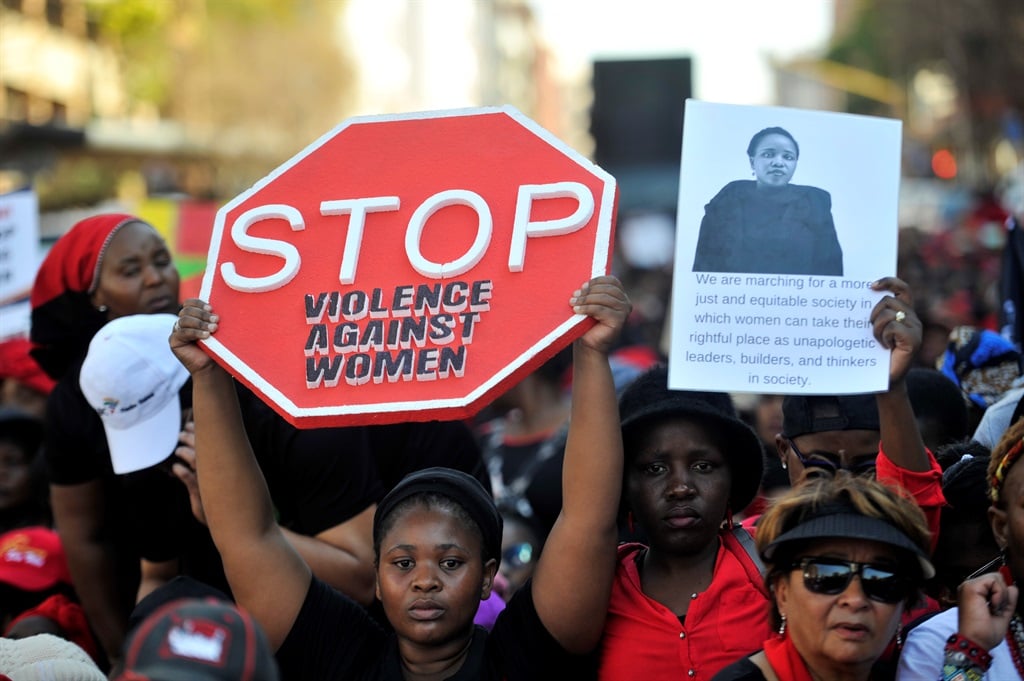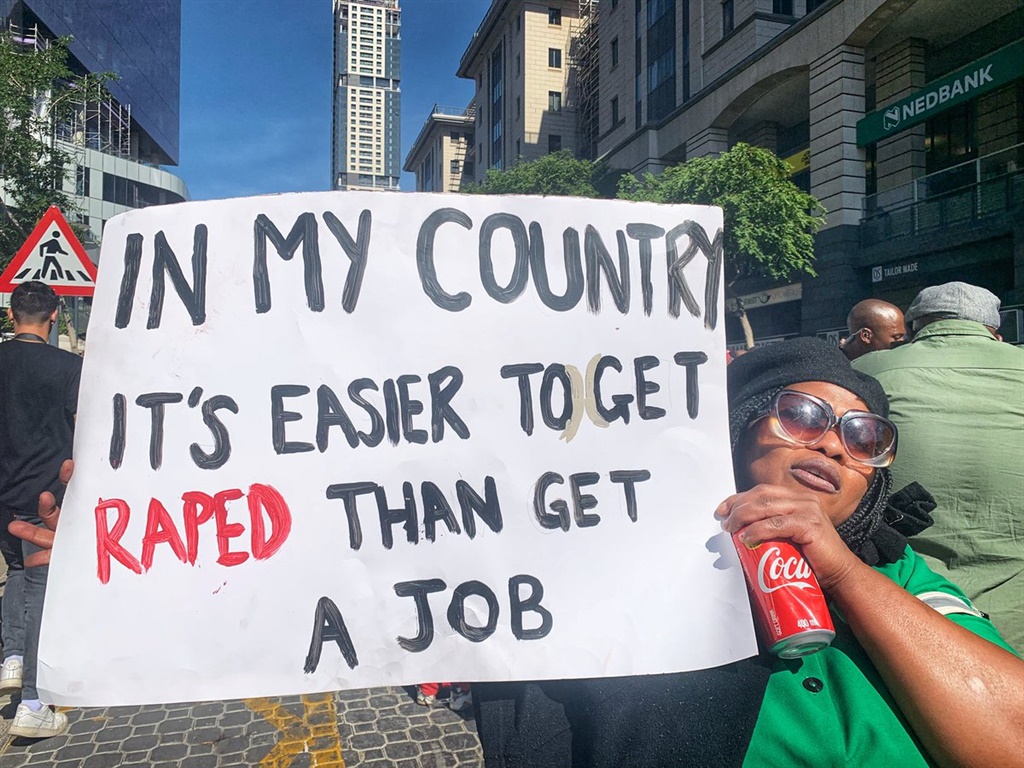
Femicide is a burning issue in the country, not because it is a new phenomenon but, owing largely to fervent media exposure, it has become topical.
The discourse is critical and long overdue.
However, the sensational focus on the murders of the victims rather than on the preceding stages of abuse is short-sighted.
So, my position on the scourge is to highlight the beginning of the process, often constituted by verbal and emotional abuse.
I argue that verbal and emotional abuse is a gateway to physical abuse.
If this intangible form of abuse could be nipped in the bud, the eventuality of murder would be curbed.
I admit that this is a tall task.
The alarming reality is that many women do not know that they are in an abusive relationship until they suffer physical blows.
Even then, they find every excuse to shoulder the blame because they cannot fathom how someone would punish them if they were innocent.
Read: Not enough convictions for gender-based violence, says DA’s Refiloe Nt’sekhe
Don’t get me wrong, I am not blaming women for their woes.
Rather, I aim to expose a rot in the proverbial apple of a dysfunctional intimate relationship.
Let’s reflect on any number of expletives and insults hurled at women behind the closed doors of what could, at face value, be considered “normal” households.
Perhaps the woman retaliates with her own arsenal of insults in the war of words with her partner.
However, he is still in the bastion of patriarchy from which he can justify his position, that he is merely disciplining a non-submissive woman.
Consequently, shee becomes testimonially incompetent when attempting to voice her predicament to third parties.
She struggles to articulate her discomfort or outrage at what her partner is saying to her and how it makes her feel.
The embarrassed sense of shame at being abused finds her censoring some of the details of the incidents.
At her core she feels that had she not provoked him, he would not have hurt her. Her self-censored testimony is not only influenced by her own insecurities.
In addition, it is an inheritance from generations of women before her who prided themselves in their ability to grin and bear the volatility of their men.
Even her peers initially sympathise with her and then in the same breath tell her that she should be grateful she has a man, unlike rejected and single women.
Should this beleaguered woman reach out to authorities in the family or law enforcement agencies, she is at pains to state her case.
Instead, she gets swallowed and then spat out by systematic patriarchy.
If, for instance, every police official approached with a domestic abuse case followed it up and intervened, how many serious harms and deaths would be avoided?
How many women have instead been turned back and admonished to fix their issues with their partner?
This is a testimonial injustice that communicates to the woman and the others with whom she shares her disappointed cry for help, that her complaint carries no legal weight.
They instead admonish her for stripping her man’s dignity naked in public.
What is a complicating factor is that the psychology of verbal and emotional abuse is a foreign concept to the average person.
They insist on blood and physical harm as evidence of abuse. Ironically, the physical evidence gives the man an innocent until proved guilty advantage.
The advantage issues from the presumption that women do not have testimonial competence because after all, they are naturally emotional and prone to wallow in their own misguided emotional whirlpool.
Read: Gates urges public to commit to ending GBV
Her complaints about the abuse fall on deaf ears, with many resolutely saying that it is none of their business.
The lesson she takes away is that her man has allies who condone his treatment of her, meaning that her appeals for justice will be blocked at every turn.
After recurring and persistent psychological harm, not only is the woman rendered testimonially incompetent because she struggles to articulate the modus operandi of her abuse.
She hits a testimonial justice brick wall when she tries to escalate her problem to appropriate authorities.
She ultimately becomes a victim of testimonial violence.
Simply put, she is voluntarily silenced. She is coerced to shut down her case because nobody wants to hear of it.
Her pleas for help cause discomfort among those around her because, ironically, some of her audience are facing the same predicament and resent her for addressing the very rotten apple they are also eating, worms and all.
Others cannot grasp how she could give so much weight to mere words because, after all, “sticks and stones might break my bones, but words can’t hurt me”.
The woman is shut-up and shutdown. She is silenced by and subordinated to society’s unanimous consensus that she must have provoked him and, if he did hurt her, it must have been her fault.
But the matter does not stop there.
When her partner realises that she has adopted a passive-resistance stance to his attacks, and he is no longer gratified by her quiet acceptance, he escalates the abuse.
To get reaction and participation from her, he initiates physical abuse. She tries to fight back but he overpowers her.
On one fateful day her pliant acceptance of his blows riles him to the extent that he accidentally or intentionally shoves her towards a sharp object and he kills her.
That is if he does not deliberately strangle, stab or shoot her.
At this point she has succumbed to testimonial violence at its extreme. She has been silenced for good.
The scenario I have mapped out is simple but by no means simplistic.
Thousands of women die in South Africa from gender-based violence. A large percentage of them are killed by their intimate partners.
Many more are beaten on a regular basis. An overwhelming majority experience a feeling difficult to articulate as their souls are repeatedly assaulted by violent words.
All the while, family members, friends, neighbours and strangers dismiss this as a private matter and none of their business.
Read: ‘We dare not rest’: Ramaphosa takes personal responsibility for GBV plan
All I have might sound like righteous indignation but I admit that i woo am likely to take a “none of my business” stance when I become aware of a woman being abused by her intimate partner. I would fear for my own safety.
I, too, struggle to find the line in the sand between the ordinary quarrels of a couple and a pattern of abuse.
I, too, have no faith in the justice system to protect someone from an intangible threat because I would also not be able to assess the respective culpability of the man and woman.
In sum, what I am saying is that there is an ecosystem of abuse that is fostered by the man, the woman, their relatives, friends, jaded onlookers, a patriarchal society and soap-box activists like me.
Should any component of this ecosystem upset the status quo by resolutely challenging the abuse, it would induce a knock-on effect that destabilises the whole system.
So, in the interests of homeostasis, these unfortunate women are the sacrificial lambs.
When they are killed, we are all quick to voice our disapproval on social media and at the funeral.
That’s too little too late.
Setlaelo is an author
 | ||||||||||||||||||||||||||
Get in touchCity Press | ||||||||||||||||||||||||||
| ||||||||||||||||||||||||||
| Rise above the clutter | Choose your news | City Press in your inbox | ||||||||||||||||||||||||||
| City Press is an agenda-setting South African news brand that publishes across platforms. Its flagship print edition is distributed on a Sunday. |




 Publications
Publications
 Partners
Partners









